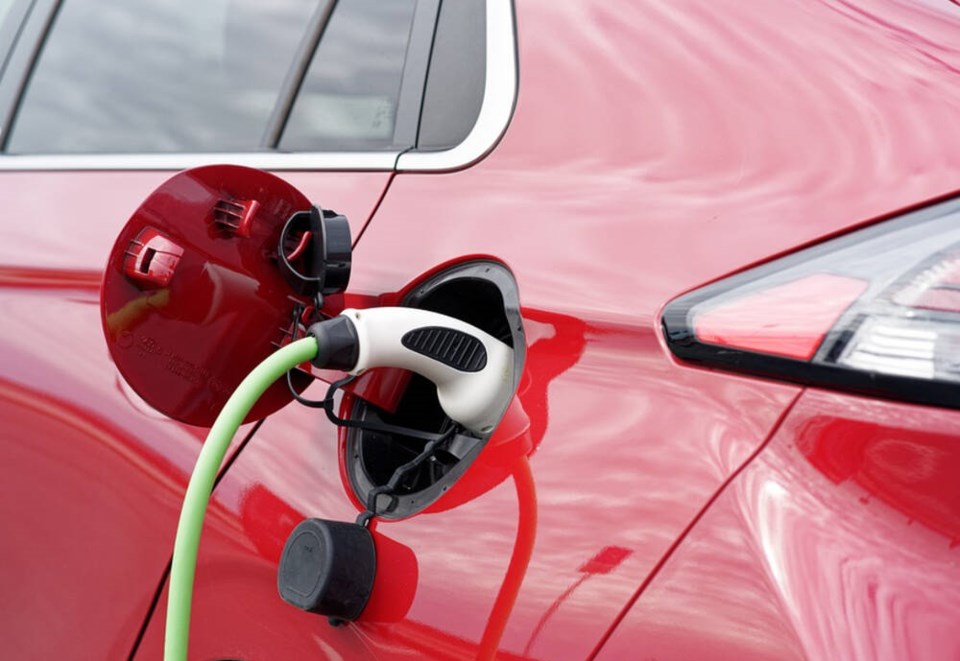Metro Vancouver wants the B.C. government to make it easier for homeowners in existing multi-family developments to add an electric vehicle (EV) charging stations at their homes.
A recent report to the regional district’s Climate Action Committee outlined several proposed climate action resolutions to the Lower Mainland Local Government Association (LMLGA) with the hope member jurisdictions will agree to subsequently submit them as resolutions at this year’s Union of BC Municipalities (UBCM) convention in September.
One of the proposed resolutions is for increased provincial funding EV charger deployment, noting that Metro Vancouver has identified that by 2035 up to 350,000 existing parking spots in multi-unit residential buildings in the region will be retrofitted to be EV charging ready.
About 2,200-to-2,900 public direct current fast charging (DCFC) ports and 32,000-to-47,000 public Level 2 ports will be needed to support anticipated demand for charging, requiring significant capital investment in both public charging and multi-unit residential buildings retrofits, totalling approximately $1.2 billion in Metro Vancouver alone by 2035, according to the report.
The province has provided funding for the purchase and installation of EV chargers for home and public charging through the CleanBC Go Electric EV Charger Rebate Program to complement the rapid increase of EV sales required through the BC Zero-Emissions Vehicle Act reaching 100 per cent by 2035.
The resolution states that the UBCM urge the province to expand and enhance the funding available through that rebate program.
In 2022, the City of Delta made bylaw changes to require EV infrastructure in new, multi-unit residential projects, part of the city’s overall Electric Vehicle Strategy.
The new rules require 100 per cent of vehicle spaces with either a dedicated Level 2 outlet or charger, as well as resident bicycle storage areas having one outlet per four bicycle spaces.
Visitor parking spaces are not required to provide EV charging.
The new requirement to provide an energized outlet would allow all parking spaces to be EV-ready, thus reducing the costs for strata corporations and owners to add electrical room capacity, conduit and wiring after construction, according to the planning department.
Delta’s previous bylaw did not currently include any EV charging requirements for new single-detached or duplex dwellings, but the new requirement is for at least one Level 2 capable outlet for single-detached dwellings, as well as for each unit in a duplex dwelling.
Secondary suites and coach houses are excluded.
For new townhouse developments with individual parking garages for each unit, there is a requirement for an outlet capable of Level 2 charging or higher per dwelling unit in a garage.
Existing developments are not required to install charging stations.
However, the BC government last year introduced legislation to make it easier for strata corporations and owners to install charging stations.
The amendments to the Strata Property Act will improve access to charging stations in residential strata buildings by lowering the voting threshold from 75-to-50 per cent approval for expenditures and changes to common and personal property needed to install stations, as well as requiring strata corporations to obtain an electrical planning report to help understand a building’s electrical capacity and plan for the expansion of stations.
Stratas will also be required to approve owners’ requests to install stations at the owners’ expense, when “reasonable criteria are met.”



